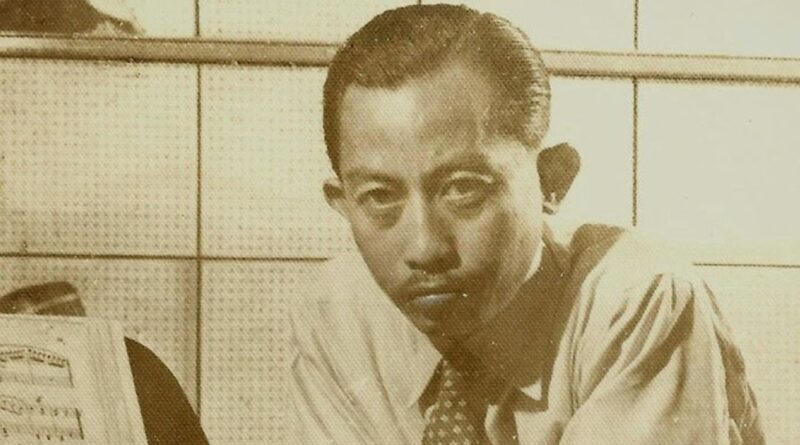Ismail Marzuki: Preserving the Nation’s Dignity Through Struggle Songs
Ismail Marzuki: Soundtrack of Independence
“Sepasang Mata Bola” was the jam in the fight to keep Indonesia free from Dutch rule post-World War II. Ismail Marzuki, according to Alwi Shahab in “Ismail Marzuki: Santri yang Melegenda Lewat Lagu Perjuangan” (2016), cooked up the lyrics during a train ride in 1946, spilling his creative beans to Yusuf Ronodipuro on the Jakarta to Yogyakarta route. Coinqqslot
Fast forward, and Yogyakarta becomes the silent witness to the Republic of Indonesia warriors facing off with the Dutch in the legendary Battle of March 1, 1949. Check out these lyrics from “Sepasang Mata Bola”: “A pair of eyeballs from behind the window comes from Jakarta heading to the field of officers.” It’s Ismail Marzuki telling his journey from Jakarta to Yogyakarta, where officers showcased their stuff against the colonizers.
Ismail, the Fighter-Artist
Ismail wasn’t just a musician; he was always there when battles went down, from early September 1945 in Jakarta to the Bandung Sea of Fire incident in March 1946. Even when the Dutch took over Radio Republik Indonesia (RRI) in Jakarta late 1946, turning it into Radio Omroep In Overgangstijd (ROIO), Ismail resisted. COINQQ
The Dutch, trying to lure him with a fat salary, a car, and more, asked him to join ROIO. But, as Ahmad Naroth shares in “Bang Ma’ing Anak Betawi” (1982), Ismail Marzuki shut that down. He bounced from Radio Republik Indonesia (RRI), now ROIO, to protect his dignity and his country’s pride. After the Dutch handed over sovereignty to the Republic of Indonesia at the end of 1949, Ismail Marzuki got back on the RRI train.
The Tale of “Halo-Halo Bandung”
Ismail’s Musical Magic
Through his tunes, Ismail Marzuki brought back the spirit of Republic warriors, fighting for the nation’s honor and dignity. He wasn’t just about “Sepasang Mata Bola”; he penned hits like “Gugur Bunga,” “Rayuan Pulau Kelapa,” “Bandung Selatan di Waktu Malam,” “Karangan Bunga dari Selatan,” “Selamat Datang Pahlawan Muda,” “Indonesia Pusaka,” and maybe “Halo-Halo Bandung.”
But why “Halo-Halo Bandung”? There’s a special story. The mystery behind the song’s creator remains, although everyone knows Ismail Marzuki is the genius. Here’s why: Ismail was a legendary lyricist, rocking powerful tunes. At the time of the Bandung Sea of Fire on March 23-24, 1946, he was still in his prime. He lived in Bandung and knew the pulse of the place.
Ismail, the Emotion-Driven Composer
Even with strong evidence, some doubt Ismail Marzuki as the man behind “Halo-Halo Bandung.” The skeptics argue that Ismail’s usual vibe was soft, calm, sometimes touching, like “Rayuan Pulau Kelapa,” “Sepasang Mata Bola,” “Juwita Malam,” “Indonesia Pusaka,” or “Gugur Bunga.” These are soul-stirring songs. “Halo-Halo Bandung,” though, has a different vibe—full of spirit, passion, and fiery beats. Ismail Marzuki was known for emotional and romantic compositions.
Pride of Betawi
Jakarta’s Beloved Son
Even though he lived in Bandung with his wife, Ismail Marzuki was a true Betawi native, born on May 11, 1914, in Senen, Kwitang, now part of Central Jakarta. His original name was just Ismail, later enriched with his father’s name, Marzuki. From then on, Ismail Marzuki became his identity. Born three months after his mother’s passing, Ismail lost two older brothers, Yusuf and Yakup, at birth.
A Life of Art and Struggle
Growing up with his father and surviving brother Hamidah, twelve years his senior, Ismail Marzuki earned nicknames like Mail or Maing from those close to him. Even the Dutch, who often heard his melodic voice, called him Benjamin or Ben.
From a young age, Mail loved the arts, especially music. Maybe the artistic flair came from his father, a tambourine player into keroncong and gambus. Mail’s talent polished up working with the Betawi community organization, Perkumpulan Kaum Betawi, dedicated to culture, including music. Although active in Scouting (then Kepanduan), his life seemed destined for artistry.
In 1931, at 17, Ismail joined Lief Java, a renowned music group since 1918. With them, he composed “O Sarinah.” Alongside Lief Java, Ismail’s name as a musician gained public recognition, often appearing on radio shows.
End of a Musical Journey
His social circle was diverse, not limited to Betawi or native people. Ismail had many friends among the Dutch, as well as Chinese and Arab descendants in the Dutch East Indies. Despite his peaceful life and many Dutch friends, Ismail did not accept the colonial situation. But, the circumstances at the time didn’t favor the realization of independence dreams, with the colonial Dutch government still holding power.
As a skilled artist creating struggle-themed songs and dedicating himself to RRI, Ismail Marzuki contributed to it shortly after Indonesia declared independence on August 17, 1945. When the Dutch regained control of RRI in 1947, Ismail, refusing to work with them, left. He only returned to RRI when the Republic regained control. Back at RRI, he became the leader of Orkes Studio Jakarta. He created campaign songs and played them for the first time during the 1955 elections.
Unfortunately, Ismail Marzuki’s life was short-lived. At 44, on May 25, 1958, he passed away due to a severe lung disease. Taman Ismail Marzuki (TIM) was established to honor artists like him, warriors through their songs, in the effort to preserve the dignity and sovereignty of the Republic of Indonesia.
